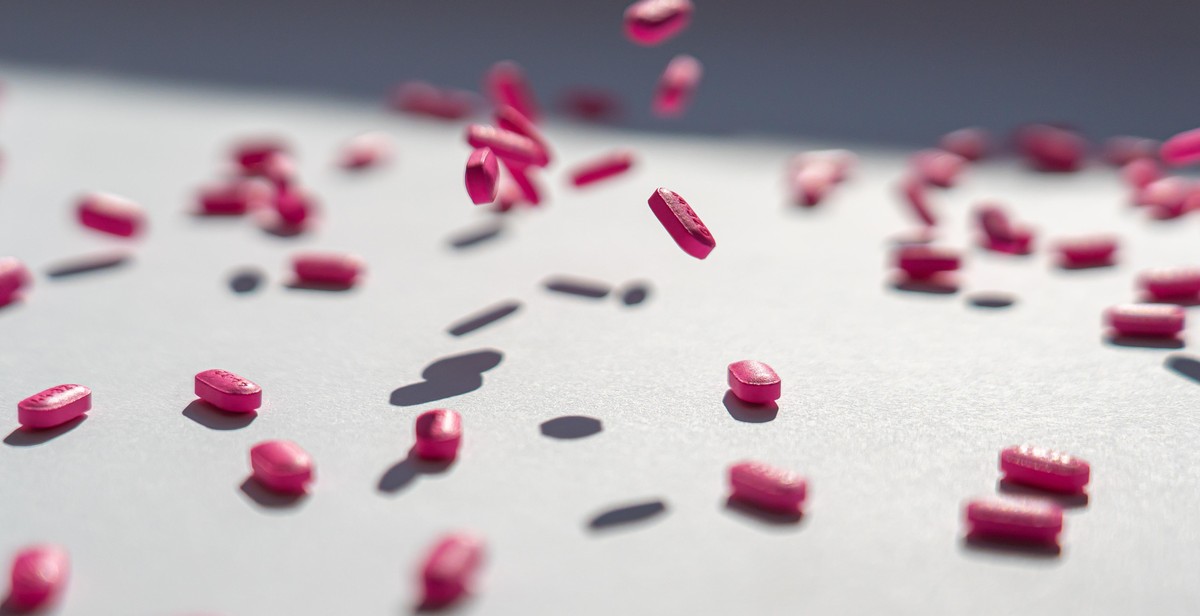Understanding Love Addiction: Signs and Recovery
Love is a powerful feeling that drives people to do incredible things. However, when love becomes an addiction, it can be destructive and overwhelming. Love addiction is a behavioral disorder that affects a person’s ability to form healthy relationships. It is characterized by an obsessive and compulsive desire to be in love, even if it means sacrificing one’s own well-being.
Love addiction is a relatively new concept in the field of psychology, and it is often misunderstood. It is not the same as sex addiction or codependency, although these disorders may co-occur with love addiction. People who suffer from love addiction have a distorted view of love and relationships. They often feel incomplete without a romantic partner and may go to great lengths to find and keep love, even if it means staying in unhealthy or abusive relationships.
Signs of Love Addiction
Love addiction can manifest in many ways, but some of the most common signs include:
- Constantly seeking out romantic relationships, even if they are unhealthy or abusive
- Feeling intense emotional highs and lows in relationships
- Believing that love will solve all problems and make life better
- Feeling anxious or depressed when not in a romantic relationship
- Putting the needs of a romantic partner above one’s own needs and well-being
Recovery from Love Addiction
Recovering from love addiction is a process that involves understanding the underlying causes of the addiction, developing healthy coping mechanisms, and learning how to form healthy relationships. Treatment may include therapy, support groups, and self-help techniques. It is important for people with love addiction to seek help and support from trained professionals and to be patient with themselves as they work towards recovery.

Signs of Love Addiction
Love addiction is a serious issue that can cause significant harm to individuals and their relationships. It is important to recognize the signs of love addiction to seek help and support for recovery. Some common signs of love addiction include:
Obsessive Thoughts and Behaviors
One of the most common signs of love addiction is obsessive thoughts and behaviors. This can include constantly thinking about a particular person, stalking them on social media, or constantly seeking their attention. Love addicts may also engage in compulsive behaviors such as repeatedly checking their phone for messages or calling their partner excessively.
Neglecting Self-Care and Responsibilities
Another sign of love addiction is neglecting self-care and responsibilities. Love addicts may prioritize their relationship above all else, including their own well-being and responsibilities such as work, school, or family obligations. This can lead to neglecting personal hygiene, missing important deadlines, and neglecting relationships with friends and family.
Frequent Relationship Hopping
Love addicts may also engage in frequent relationship hopping, moving from one relationship to another without taking time to heal or reflect on past experiences. This can be a way to avoid dealing with underlying issues or emotions, and can lead to a cycle of unhealthy relationships.
Using Love as a Means of Escaping Reality
Finally, love addiction can involve using love as a means of escaping reality. Love addicts may use relationships as a way to avoid dealing with difficult emotions or situations, or to distract themselves from personal issues. This can lead to a dependence on relationships and an inability to cope with life’s challenges without a romantic partner.
Recognizing these signs is the first step towards recovery from love addiction. Seeking professional help and support from loved ones can be instrumental in overcoming this issue and developing healthier relationships in the future.

Causes of Love Addiction
Love addiction is a complex issue that can have various underlying causes. Here are some of the most common causes of love addiction:
Childhood Trauma
One of the most significant causes of love addiction is childhood trauma. People who have experienced neglect, abandonment, or abuse in their childhood may develop a deep fear of being alone or abandoned. This fear can lead them to seek out relationships constantly, even if they are unhealthy or toxic. They may also cling to their partners and become overly dependent on them for emotional support and validation.
Attachment Styles
Attachment style is another factor that can contribute to love addiction. People who have an anxious attachment style tend to crave intimacy and validation from their partners, and they may become overly attached and dependent on them. On the other hand, people with avoidant attachment styles may avoid intimacy and emotional connection, leading them to engage in short-lived relationships or serial dating.
Chemical Imbalances
Chemical imbalances in the brain can also contribute to love addiction. The neurotransmitter dopamine, which is responsible for feelings of pleasure and reward, is often released in large amounts during the early stages of a relationship. This rush of dopamine can create a powerful addiction to the feeling of being in love, leading people to constantly seek out new relationships or stay in unhealthy ones.
- Childhood trauma, attachment styles, and chemical imbalances can all contribute to love addiction.
- People who have experienced neglect, abandonment, or abuse in their childhood may develop a deep fear of being alone or abandoned.
- Attachment style is another factor that can contribute to love addiction, with anxious attachment styles craving intimacy and validation and avoidant attachment styles avoiding emotional connection.
- Chemical imbalances in the brain, particularly the release of dopamine during the early stages of a relationship, can create a powerful addiction to the feeling of being in love.
It’s important to note that love addiction is a treatable condition, and recovery is possible with the right support and resources. In the next section, we’ll explore the signs and symptoms of love addiction and how to get help.

Impact of Love Addiction on Relationships
Love addiction can have a significant impact on relationships, leading to a range of negative behaviors and emotions that can ultimately cause the relationship to break down. Here are some of the most common ways that love addiction can affect relationships:
Codependency
One of the most significant impacts of love addiction on relationships is the development of codependency. Codependency is a pattern of behavior where one person in the relationship becomes overly reliant on the other person for their emotional well-being. This can lead to a range of negative behaviors, such as excessive jealousy, controlling behavior, and a lack of personal boundaries.
Codependency can be incredibly damaging to a relationship, as it can lead to resentment, anger, and a lack of trust between partners. It can also make it difficult for the couple to maintain a healthy balance in their relationship, as one person is constantly relying on the other for their emotional needs.
Jealousy and Possessiveness
Another common impact of love addiction on relationships is the development of jealousy and possessiveness. Love addicts often struggle with intense feelings of jealousy and possessiveness, which can cause them to become overly controlling and demanding of their partner.
These behaviors can be incredibly damaging to a relationship, as they can lead to a lack of trust, resentment, and even emotional abuse. Over time, they can erode the foundation of the relationship and cause it to break down completely.
Inability to Form a Healthy Relationship
Finally, love addiction can make it incredibly difficult for a person to form a healthy relationship. Love addicts often struggle with low self-esteem, a fear of abandonment, and a lack of personal boundaries. These issues can make it difficult for them to form a healthy, balanced relationship with another person.
Instead, love addicts often find themselves in a cycle of unhealthy relationships, where they are constantly seeking validation and emotional fulfillment from their partner. This can lead to a range of negative behaviors and emotions, such as jealousy, possessiveness, and a lack of trust.
Overall, the impact of love addiction on relationships can be incredibly damaging. If you or someone you know is struggling with love addiction, it is important to seek help from a qualified mental health professional.

Recovery from Love Addiction
Love addiction is a serious problem that can cause significant emotional distress. However, with the right treatment, it is possible to overcome this addiction and lead a healthy, fulfilling life.
Recognizing and Admitting the Addiction
The first step in recovering from love addiction is recognizing and admitting that you have a problem. This can be difficult, as many people with love addiction may not even realize that they have an addiction. However, once you acknowledge the problem, you can begin to take steps towards recovery.
Seeking Professional Help
Professional help is often necessary for those struggling with love addiction. A therapist or counselor can help you identify the underlying issues that are contributing to your addiction and develop a treatment plan to address them. They can also provide you with the tools and techniques you need to overcome your addiction.
Developing Healthy Coping Mechanisms
Developing healthy coping mechanisms is an important part of recovering from love addiction. This may include learning how to manage stress, practicing self-care, and finding healthy ways to express your emotions.
Working on Self-Esteem and Self-Worth
Low self-esteem and self-worth are often at the root of love addiction. Working on building your self-esteem and self-worth can help you break free from the cycle of addiction and develop healthier relationships in the future.
- Practice self-care, such as exercise, eating well, and getting enough sleep
- Set boundaries in your relationships and stick to them
- Learn to identify and challenge negative self-talk
Overall, recovery from love addiction is possible with the right treatment and support. By recognizing and admitting your addiction, seeking professional help, developing healthy coping mechanisms, and working on your self-esteem and self-worth, you can overcome your addiction and live a healthy, happy life.
